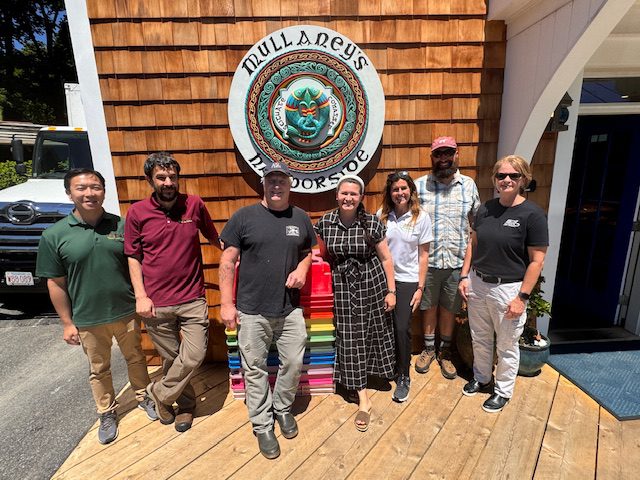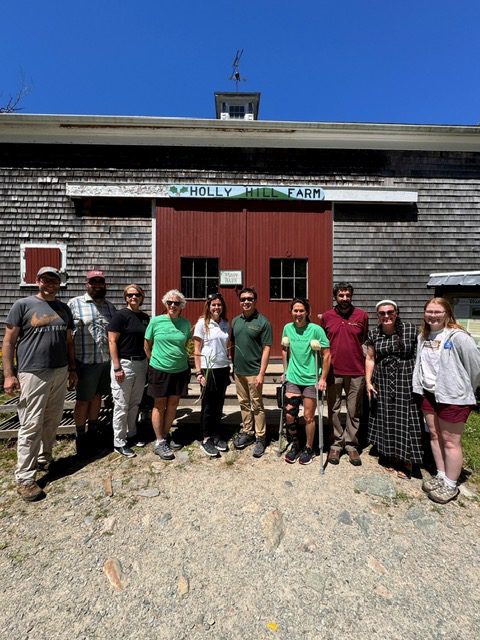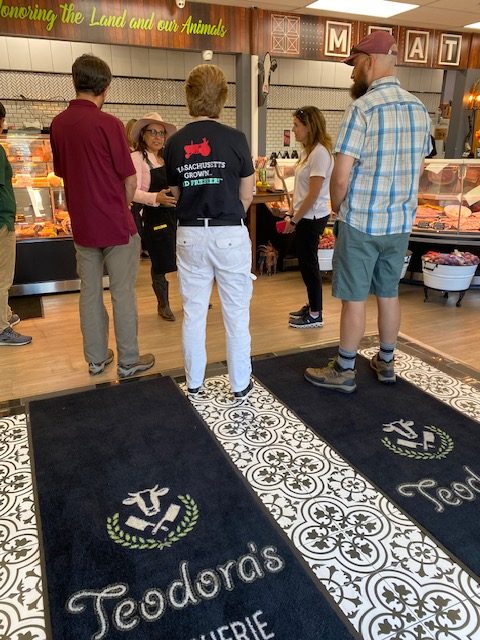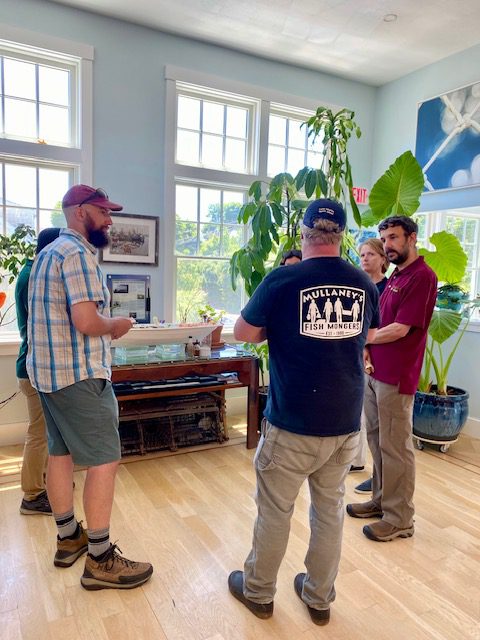
July 12, 2204 By Food Scribe Consulting, LLC
On Friday, June 28th, Massachusetts Agriculture Commissioner Ashley Randle, accompanied by executive staff from the MA Department of Agricultural Resources (MDAR) and the Harvard Food Law and Policy Clinic, toured three South Shore producers nestled along the coastal towns of Cohasset and Scituate: Holly Hill Farm, Teodora’s Boucherie Gourmande, and Mullaney’s Harborside Fish Market. Christine Becker, a food policy consultant and recent graduate of the Harvard Kennedy School of Government, designed the tour to highlight food and agriculture businesses that deliver high-quality products with the consumer and environment in mind. As the deadline for the upcoming U.S. Farm Bill approaches, topics such as regenerative agriculture in crop and cattle production and sustainable fishing continue to gain traction. Today, the South Shore boasts three experts spanning this range of issues.

Holly Hill Farm, led by Executive Director Meredith Laban, is the only remaining farm in Cohasset and dished up tangible data for tour participants in the form of farm-grown salad studded with garlic scapes and raspberries made by high school volunteers and grown in nutrient-dense soil. “The farm educated 20,000 students last year from 40 South Shore-based schools on topics ranging from biodiversity to conservation, says Laban.” The farm’s no-till method and conversion of organic waste into fertilizer translates into atmospheric carbon storage and high-quality vegetables — for the local community, food pantries, and students.

Teodora’s Boucherie Gourmande is a new butcher shop owned by Rosangela Teodoro, a third- generation Brazilian cattle rancher with a fierce conviction towards quality and ethically raised animals. While Rosangela carefully curates her selection of meats, her next goal is to launch a cattle farm in New England to support the local food economy.

Mullaney’s Harborside Fish Market, owned by Scituate local and trusted fishmonger Joby Norton, is located along one of the few remaining working harbors in Massachusetts. Its green technology processing facility has decreased fishermen’s costs by 15%. Food waste margins are less than 1% — a figure exemplifying efficiency. While participants savored homemade ceviche, Winton Pitcoff, MDAR Deputy Commissioner, commented on the remarkable cleanliness of the space. Joby reassured him, “Fish markets shouldn’t have an odor.” Mullaney’s fish is caught within 24-28 hours of sale and never sprayed with synthetic preservatives.
The farm tour made a lasting impression. Not only did it foster connection among farmers and policy gurus, but it also underscored the crucial role local agriculture and marine fisheries continue to play in the Massachusetts economy.



